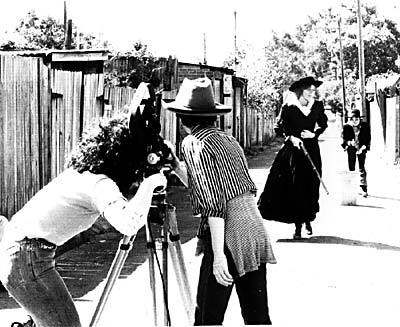Lights, Camera, Action! Digital Filmmaking for Beginners
Digital filmmaking is very popular today not just as a hobby but also as a career option. It's always best to attend a filmmaking school for professional training, however here's a quick introduction to digital filmmaking for beginners.

Selecting the right camera for your goal and budget
It's important to select a video camera that lets you do what you want to do while remaining within your budget.
Additionally, most digital cameras come with a movie mode these days and they are surprisingly adept at producing near-professional quality films!
Finally, if you're super serious about your digital filmmaking venture, try HDD (hi-def) movie cameras.
Invaluable video camera accessories
You'll also need some basic filmmaking accessories including but not limited to a carry case, DVD burner, tripod, external microphone (in addition to the one built into your movie camera), various lenses (wide angle, telephoto, fisheye, panoramic vortex etc.), lens filter kits, video lights, plenty of storage media like SD cards and batteries.
Filming. Functions of each button
When it's time to actually film your movie, you'll need to learn the functions of your camera. Each camera is different, depending on its make and model but some things usually stay constant. For example, there will always be buttons that say "Power", "Open", "Rec", "Start/Stop", "Setup" and "Finalize".
You can zoom in or out on your subject and use "auto focus" to let the camera focus itself optimally on your subject. Using automatic settings is best for beginners, but over time, you definitely want to learn how to adjust your camera's settings manually for best results. You can review your footage by using the "Play/Edit" button. You'll also be able to control the exposure (exposing the lens to the images you want to capture) and white balance (colour correction and mixing) before you start shooting.
Editing your movies into a finished production
It usually takes professional training and experience to do a good job editing video footage and deriving the finished product. However, you can use software that imports all your video recordings and lets you edit, add effects, music, transitions and titles.
Digital filmmaking is an exciting field and with enough practice and the willingness to experiment and learn, you can master this craft and be well on your way to being the next Steven Spielberg!